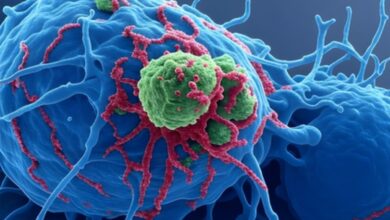Scientists convert a kidney from blood type A to universal type O

In a step toward increasing access to donor organs, scientists have converted a blood-type-A kidney to blood type O and then transplanted it into a brain-dead person. The kidney, which had essentially been turned into a universal transplant organ, functioned well for two days before showing signs of rejection. With refinement, this strategy could pave the way for shorter waits on organ donor lists.
In a study published Friday (Oct. 3) in the journal Nature Biomedical Engineering, researchers detailed this successful conversion of a kidney from a donor with type A blood to a type-O organ using enzymes, which are proteins that kick-start chemical reactions in the body.
Kidney transplantation has been a treatment for patients with renal disease since the 1950s. Like all organ transplants, however, it is somewhat limited by the need to match the blood type of the donor with that of the recipient, along with the requirement to find an appropriately sized organ that’s geographically close enough to transplant in time.
Humans have four major blood groups — A, B, AB and O — and the immune system of a person with one blood type may react against another type. For example, a transplant candidate with type O blood can only receive a type-O donor kidney, but someone with A, B or AB blood type can also receive a type O kidney. That’s because each blood type is defined by immune-triggering substances, called antigens. O blood lacks these antigens, so it can be given universally, while other blood types would set off a type-O person’s immune system.
However, in the late 1980s, scientists developed a way to transplant ABO-incompatible (ABOi) organs — an organ from a donor with one blood type into a donor with an incompatible blood type — into recipients who needed them. But the process is demanding and takes several days. Then, in 2022, researchers developed an enzyme-based treatment protocol that can convert an organ into a “universal” transplant called enzyme-converted O, or ECO.
“The ECO process has been demonstrated for lungs,” study co-author Stephen Withers, a professor emeritus of biochemistry at the University of British Columbia, told Live Science in an email. “We hope it works for all other organs — it should!” (Earlier this year, a different research group reported converting a kidney using ECO, but they started with a blood-type-B kidney in their experiment.)





